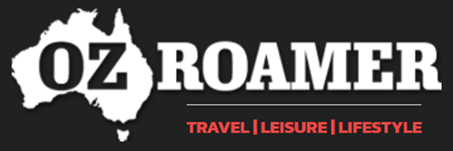With the price of oil over US$100 per barrel in recent times, & fuel prices refl ecting this, it’s no surprise that the motoring public is looking for more economical passenger vehicles. This, along with the quantum leaps made in recent times in performance & economy of the new generation diesel engines, has caused a dramatic increase in diesel powered passenger vehicle sales in Australia. We Australians are used to diesel powered 4WD vehicles, but have been hesitant to embrace diesel power in passenger cars. Why? because they have been perceived as being noisy, smelly, & sluggish. Well, that’s all changed. Not only are these vehicles extremely economical, but they produce excellent performance & are just plain fun to drive.
 A brief look at diesel passenger vehicle sales statistics over the last 4 years shows a clear trend. In 2003, Australian sales of diesel powered passenger cars were almost non-existent with only around 500 units sold. This doubled in 2004, & in 2005 jumped to 7061 vehicles. This was largely attributed to the VW Golf GLD which accounted for 56% of these sales. In 2006 sales exploded to over 15,000. VW topped the sales again but lost some of the market share enjoyed in 2005 due to a continuing emergence in diesel powered options from other manufacturers. It seems that every week a new diesel powered option surfaces in the passenger car market. With this in mind, 2007 should see even more new diesel powered cars on the road.
A brief look at diesel passenger vehicle sales statistics over the last 4 years shows a clear trend. In 2003, Australian sales of diesel powered passenger cars were almost non-existent with only around 500 units sold. This doubled in 2004, & in 2005 jumped to 7061 vehicles. This was largely attributed to the VW Golf GLD which accounted for 56% of these sales. In 2006 sales exploded to over 15,000. VW topped the sales again but lost some of the market share enjoyed in 2005 due to a continuing emergence in diesel powered options from other manufacturers. It seems that every week a new diesel powered option surfaces in the passenger car market. With this in mind, 2007 should see even more new diesel powered cars on the road.
Of course, Europe has been pro-diesel for years. More than 50% of passenger cars sold there today are diesel powered. European manufacturers such as VW, Mercedes Benz, Peugeot, Citroen, have been offering diesel options since the early 80’s, and this has given them the edge in this market. All the diesel powered cars offered by manufacturers such as these today have outstanding performance and economy.
One recent entry into the fi eld is Holden with the new Astra CDTi. This is the fi rst time since the 1981 Gemini TF that Holden have offered a diesel option. The Gemini featured a Japanese engine; the new Astra’s heritage is European, where it has gained great respect. It comes in two engine/power train versions; a 1.9 Litre twin cam producing 110kW at 4000rpm and 320Nm torque coupled to a 6 speed manual transmission, and a milder 1.9 Litre single cam version producing 88kW at 3500rpm and 280Nm torque coupled to a 6 speed auto transmission. Both versions are turbocharged (utilizing variable geometry), intercooled, and feature a high pressure common rail fuel system reaching 1600 bar pressure (equivalent to 22,720 psi if that’s more your scale). Holden claims fuel consumption fi gures of 6.0L/100km for the manual transmission version, and 7.1L/100km for the auto.
Audi has launched a 2.0 Litre turbo diesel version of the compact A4 sedan in Australia. Audi produces several diesel powered models and variants, currently available in Europe, including the A3 and A6. The new 2.0L A4 TDi provides an output of 104kW at 4,000rpm and 320 NM torque.
VW, Mercedes Benz, Peugeot, & Citroen offer diesel options in almost all their cars. The details of which are too numerous to list here. The Japanese manufacturers, no strangers to diesel
The Japanese manufacturers, no strangers to diesel powered 4WD and commercial vehicles, have been slow to move in the passenger market in Australia, & it’s is worth noting that in 2006, no Japanese diesel powered passenger vehicle sales were recorded. They are though, beginning to offer diesel options & will, no doubt, increase the range available this market segment as 2007 progresses.
Mazda have released a diesel version of the Mazda 6, & Honda, it is reported, have developed a new generation diesel engine which will be available as an option in future. So, never before has there been a better time to consider a diesel next time you are buying a passenger car.
